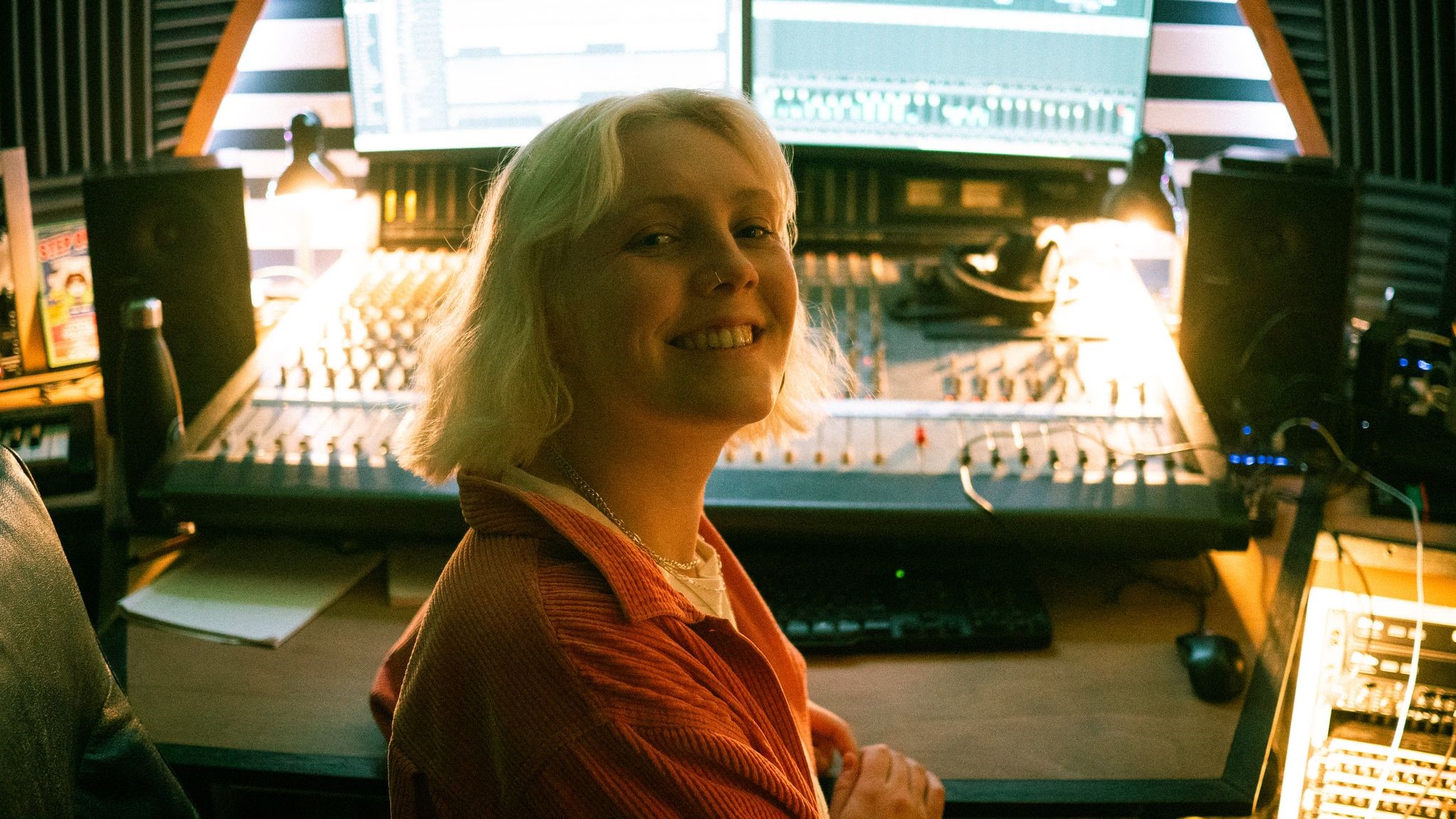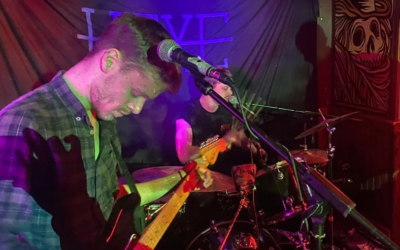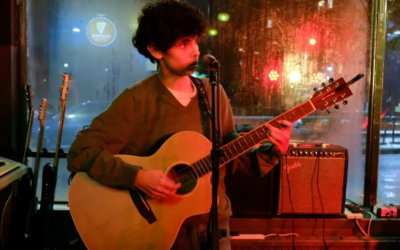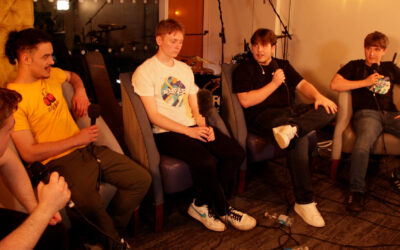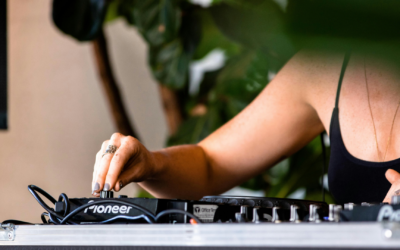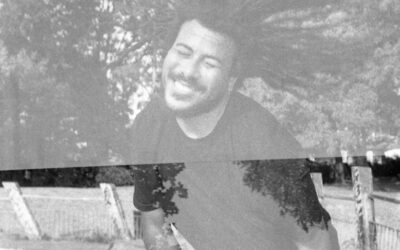Have you ever wondered what it’s like to produce music? Ever sat in front of a mixing desk and not had a clue what all the buttons do? Us too.
That’s why we spoke to Molly Clark from Make Noise Studios, to help break down the first steps of producing as a career, and landing your first professional job.
An inevitable part of the music-making journey for any artist, studio recordings are as daunting as they are thrilling. The same can be said for aspiring producers seeking to make a career in a competitive and ever-changing environment. However, it doesn’t have to be this way according to Clark.
Clark’s producing career started at university studying music, where she recorded and produced a full EP. She then continued to produce tracks through her band Lucid, and worked as a live sound engineer at gigs before becoming a trainee producer at Make Noise in the Summer of 2022, under the mentorship of Senior Producer Tom Henthorn.
Now with almost two years of experience, she has established a name for herself in the Yorkshire music scene, working with the likes of Paul Party, Lucy Roberts, and producing Teah Lewis’ Underweather EP amongst many others.
As for her role in the studio, Clark stated that it varies depending on the artist’s needs, she has her own preferences: “Some people have got a full EP of songs they want to do, they don’t really want any creative input from the producer, they just want someone to engineer and hit record.
“Some people, like Lucy (Roberts), we brought a song to life together, they want that kind of more producer role as opposed to an engineer.
“The ones that I prefer are the ones where I get to be a bit more creative.
“It works really well when you click with someone, it’s so good when you’re on the same wavelength about how you want to do stuff and it’s really exciting.”
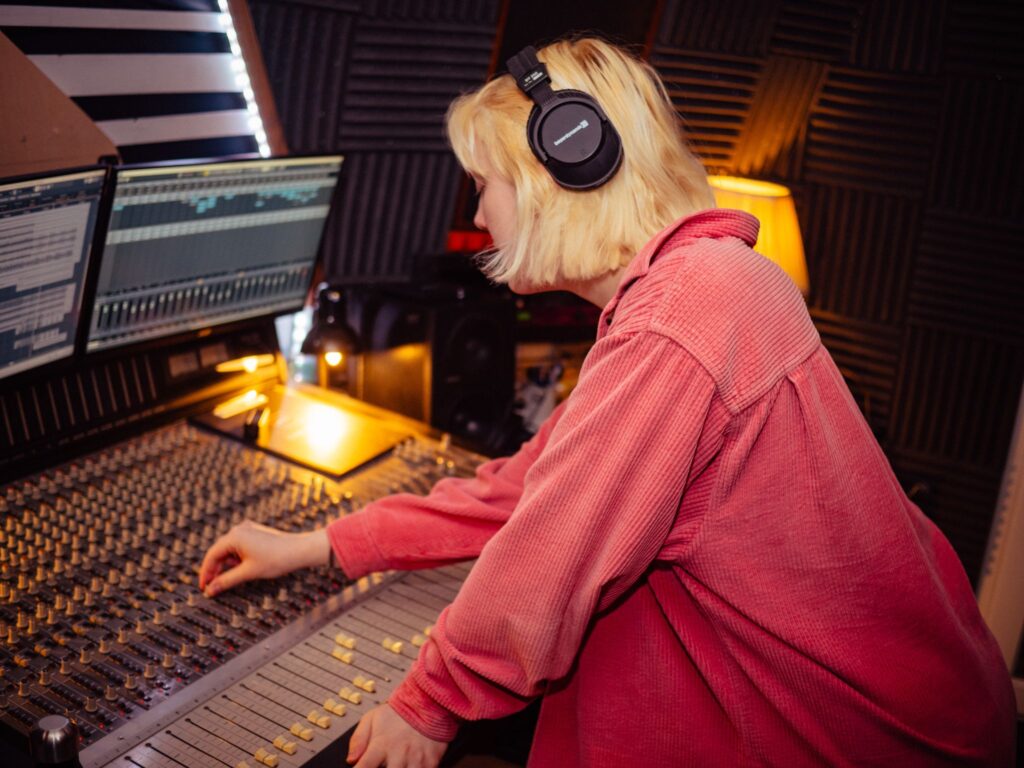
Whilst not a necessity, her background as a musician has been a helpful tool as a producer, allowing her to step up creatively and offer more than traditional mixing and mastering. Clark has filled in on the piano for artists, as well as helping them to rework song structure and chord progressions if something isn’t feeling right on the recording.
She explained that her knowledge has helped her to be an adaptable producer: “I think being flexible and willing to work in any genre is a really good thing, being able to lend yourself to whatever genre or song it is and creatively give your all to that song and that style as much as you can.
“Even if there’s someone who knows that genre better than you, you might still bring something different that they wouldn’t have thought of.”
Looking back at her first steps, Clark recalled the benefits of live sound experience: “As the live sound engineer for a gig you’re the person who’s running all the sound checks, putting all the mics up, making sure the band can hear everything in the monitor, making sure it sounds good out front for your audience – lots of the stuff that you’re doing there with the sound desk using EQs and compressors is very applicable in the studio.
“It’s slightly different and in a way it’s a less pressured situation – when you’re doing a gig if you don’t have the sound check done by the time the doors open then ‘too bad!’ or if you can’t get the PA to work, speakers to work, then no one’s going to hear the gig.
“It’s quite a high pressure situation but you learn to deal with a lot of those technical problems really quickly and not lose your mind.”
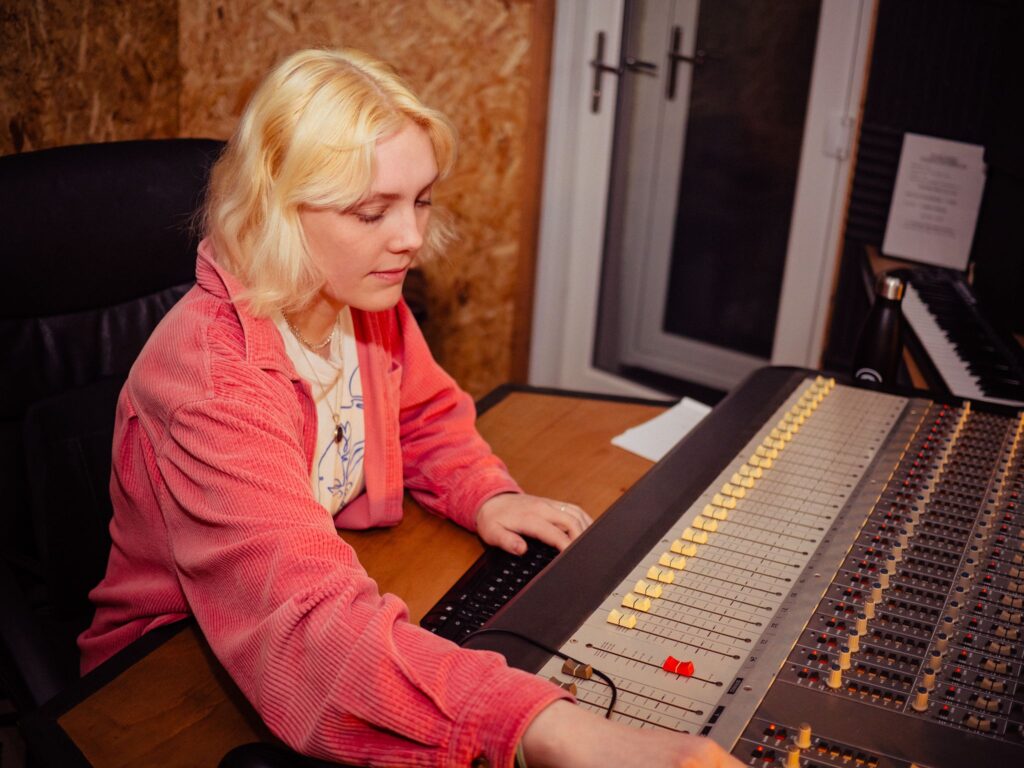
Taking this first step and getting experience is the largest challenge for many aspiring producers in Clark’s eyes, with limited opportunities for professional advancement in an industry that she says, at times, can feel more about who you know than what you know.
She elaborated that this shouldn’t discourage those looking to make a start though, with many ways of self-teaching available, such as learning from courses on YouTube and choosing a digital audio workstation such as Ableton, or even free systems such as GarageBand to become well-versed in.
Whilst stepping into the studio levels up the complexity of a producer’s responsibilities with new equipment and professional standard workstations, Clark says that a lot of techniques that can be learnt at home will create a transferable skill set that will set up any producer for success.
She says that showing passion and effort is the best way to make connections in the industry, which can become an invaluable and supportive environment for development.
Clark explained: “It’s all about getting to know good people, being friendly and helpful, being willing to volunteer which is difficult but is the best way to do it.
“If you show you’re willing and helpful and can coil cables well then I don’t think producers will mind you asking to shadow them.
“People love their craft and want to share it.”
Follow us on Instagram, Twitter, Facebook and Tiktok for more content!


